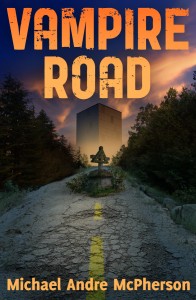The crowd that clings to paper books has a standard set of excuses as to why they prefer dead, pulped trees over electrons as their delivery system for words.
Excuse # 1: I can’t lend an e-book to a friend like I can with a paperback.
That argument fell apart when Amazon introduced their share function, which allows readers to share e-books the same way you would with paper: you electronically lend it to a friend for three weeks, during which you can’t access the book (just like with paper books) and at the end it reverts to you, and your friend no longer has access to the book. Hey! That’s even better than a paper book because I don’t have to go chasing down my friends to get my books back.
Excuse # 2: I can’t borrow e-books from the library.
Actually libraries have been loaning e-pub format books (think Sony E-reader) for ages, although the lending systems have been plagued with the challenges you’d expect from a new technology. But this morning everything changed again: Amazon is going to partner with Overdrive to bring Kindle format e-books to 11,000 US libraries. This is going to dramatically improve the current delivery system, and it’s going to put more pressure on publisher’s like Macmillan and Simon and Schuster, who have yet to allow lending of e-versions of their books, and HarperCollins and the others who have placed many restrictions on e-book lending, much to the consternation of librarians.
Excuse #3: I can’t take an e-reader into the bathtub.
Put an e-reader into a large ziplock bag and it’s actually better in the bathtub than a paper book. Turning pages is a simple press of a button rather than fumbling with wet fingers on dry pages. Better yet, if you drop your ziplock-bagged e-reader in the tub it’ll stay dry and unharmed, unlike a paper book, which will require a long drying period that may still fail to prevent mold. This assumes, of course, that you don’t fall asleep, roll over onto your e-book, shove it to the bottom of the tub and sit on it for an hour. I can’t help you there.
Excuse # 4: But I like the smell and feel of paper books.
That smell is printing chemicals, binding glue, and if it’s an old book, mold and mildew. Most people like the look and feel of candlelight too, but how many people stuck with candles as their primary light source after electric light bulbs were invented? I’m sure there were hold outs who didn’t trust the new-fangled electricity, and I’ll bet they had a long list of excuses as to why they didn’t want anything to do with that new technology.
The reason e-books will become the standard is that rather than being as good as paper books, they’re actually better. The publishers who accept this first will be the most successful during the next ten years.
 Good thing I set a ten dollar per-day maximum or I might have needed to run to the bank for a loan.
Good thing I set a ten dollar per-day maximum or I might have needed to run to the bank for a loan.